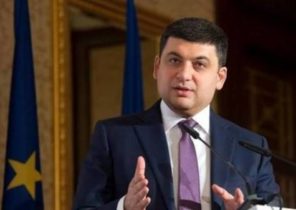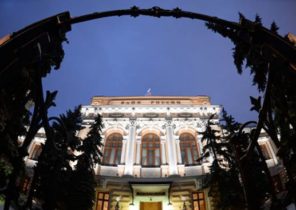
ISIS militants (banned in Russia organization — approx. TRANS.) from Central Asia involved in the terrorist attacks in Istanbul airport. Ataturk for attacks on a nightclub in the city. The airport attack was carried out by the Chechen, Kyrgyz and Uzbek, allegedly trained in ISIS. Currently, the Turkish authorities suspect that the Kirghiz or Uzbek staged a shooting in the New Year in the night club Reina. Responsibility for the attack took on itself the “Islamic state” declared war on Turkey. Now it is impossible to determine exactly how many Kyrgyz, Uzbeks and citizens of other Central Asian countries are fighting in the ranks of ISIS in Turkey and Syria, but The Diplomat reports that they are mainly used to carry out terrorist attacks as suicide bombers.
Because the Western press does not indulge the attention of the Central Asian countries, the reader is difficult to draw a direct link between the ISIS, which is predominantly Arab movement, and the Turkic peoples of the Soviet past in Central Asia. Recruiting Uzbeks and Kyrgyz to carry out terrorist attacks in Turkey, ISIS has the advantage that they have with the Turks there is a common language and cultural traits in the Turkish society they fit more organic than the Arabs. Because of these features, and because of the tumultuous history of these countries after the collapse of the Soviet Union in 1991, Central Asia has become fertile ground for the recruiters of ISIS.
The collapse of the Soviet Union led to the last phase of the civil war in Afghanistan and the beginning of the conflict in Tajikistan. These hostilities gave rise to the Taliban and less famous of the Islamic movement of Uzbekistan. GO stated that his goal is to shift the Karimov regime in Uzbekistan and establish an Islamic Caliphate centered in the Fergana valley. To reduce the effectiveness of increasing GO, the Central Asian States of Kazakhstan, Kyrgyzstan, Uzbekistan, Tajikistan and Turkmenistan restricted the movement of people between the republics, by entering the visa. But that didn’t stop the Islamic movement of Uzbekistan (IMU), which in 1999 and 2000 undertook the dangerous raids into Kyrgyzstan from their bases in Tajikistan.
But when the United States in 2001 and began military action in Afghanistan, the fighting capacity ARE significantly weakened. The US and its coalition allies managed to destroy the main part GO, but the movement has preserved its heritage, creating a precedent for Islamic alternatives to the authoritarian regimes in Central Asia. In this regard, the authorities of the Central Asian States increased repression against the Islam and the political opposition in the region. A typical example of this heritage was the Andijan massacre in 2005.
In the protests in Andijan was attended by local residents, who demanded better jobs, education and public services, and Islamic militants, who challenged the Uzbek regime. The Uzbek government sent troops to brutally crush the protests, shot more than a thousand people. Since then, Uzbekistan has maintained the fragile peace. But after the recent death of autocratic Uzbek leader Islam Karimov, many have the concern that the effects of Andizhan can result in a new wave of violence. However, even if we manage to preserve the stability of LIH would still be no problem to recruit new militants among the disaffected population.
When was outlawed Islamist political parties and organisations “Hizb ut-Tahrir”, which was proclaimed as the goal of a peaceful establishment of a Caliphate in Central Asia, this has pushed many young Central Asians into the arms of radicals, which operated underground. It turned out that the resistance in the name of Islam has less to do with religion and much more with hopelessness, desperation, and dissatisfaction with the brutal and incompetent regime. The failure of Central Asian States from the political and economic reforms, as well as their reluctance to relax control over Islamic political parties and organizations can strengthen ISIL fomented the conflict in the region and lead to an increase in the number of terrorist attacks carried out by its residents abroad. Recent events in Istanbul have clearly shown that ISIS recruited citizens of the Central Asian countries to leave the war in Syria and Turkey.
The Central Asian States as a first step in the fight against ISIS needs to rebuild the shattered education system in the region. Furthermore, although the reform there has been slow, leaders of the Central Asian countries need to open up the political arena for opposition groups to overcome the systemic corruption.
Great once the Soviet education system after the collapse of the Soviet Union in 1991 began to collapse affected by deep corruption. Its features became insufficiently trained teachers who receive low wages, dilapidated schools, outdated teaching materials, and widespread bribery. The result is a low-skilled staff, using career connection and patronage. As a consequence, the poorly educated youth of Central Asia became vulnerable to extremist rhetoric and increasingly hopes to feel important and to find means of subsistence in the ranks of ISIS.
To remedy the situation, Central Asian countries should direct some of their considerable income from the exploitation of natural resources to rebuild the education infrastructure and at least to raise teachers ‘ salaries to reduce bribes.
Important political reforms, as the Central Asian States faced with the threat from ISIS. Fiona hill (Fiona Hill) of the Brookings institution for more than 10 years, delivers a warning to Congress, saying: “an Objective and thoughtful analysis of the causes of religious extremism and long-term commitment to assist, coordinate and situational planning is the only possible solution to the problems of Central Asia and the way to achieve success in the war against terrorism in the region.”
While the authorities of the Central Asian region will ignore the plight of its population, it will increasingly join the ranks of ISIS and carry out attacks abroad. Famous Pakistani journalist Ahmed Rashid (Ahmed Rashid) 17 years ago has indicated to the international community on the need to understand that “the future of Central Asia may affect the future of the rest of the world”. This is true today as ever. Ask the residents of Istanbul.







